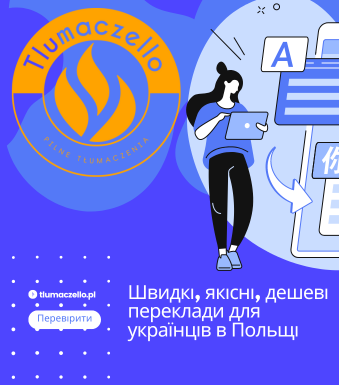Beyond Borders: The Journey of Indonesian Workers Thriving in Poland

The narrative surrounding Indonesian workers seeking employment abroad is often painted with broad strokes, emphasizing vulnerability and exploitation. While instances of abuse undeniably exist, focusing solely on this aspect overlooks the agency, resilience, and economic contributions of these individuals. Poland, facing a significant labor shortage, has become an increasingly popular destination for Indonesian migrants. This article delves beyond simple victimhood or unbridled success stories, examining the complex reality faced by Indonesian workers in Poland. We will explore the precarious balance between opportunity and exploitation, the challenges of integration, and the crucial need for ethical labor practices to ensure a brighter future for these vital contributors to the Polish economy.
Exploitation or Opportunity? Examining Indonesian Labor in Poland
The allure of higher wages and better living standards draws many Indonesians to Poland. Opportunities in sectors like manufacturing, hospitality, and construction offer a significant increase in income compared to what is available in Indonesia. However, this promise often clashes with the harsh realities of labor migration. Many Indonesian workers are recruited through agencies that charge exorbitant fees, trapping them in debt bondage before they even begin working. This initial financial burden significantly reduces their earnings and makes it difficult to break free from potentially exploitative conditions.
The exploitation manifests in various forms, including underpayment, excessive working hours, and unsafe working conditions. Language barriers and a lack of awareness about their rights make Indonesian workers vulnerable to unfair treatment. Some employers take advantage of their precarious legal status and fear of deportation to suppress wages and demand unreasonable workloads. There are also documented cases of inadequate housing and restricted access to healthcare, further compounding their vulnerability.
Therefore, while the prospect of earning more money represents an opportunity, the path to securing this opportunity is often fraught with exploitation. The power imbalance between employers and migrant workers, coupled with systemic weaknesses in labor regulations and enforcement, creates a breeding ground for unethical practices. The dream of a better life can quickly turn into a nightmare of debt, hardship, and diminished well-being.
Challenging Narratives: Indonesian Workers’ Agency in Poland
Despite the potential for exploitation, Indonesian workers are not passive victims. They actively seek out opportunities, negotiate terms, and navigate complex bureaucratic systems in their pursuit of a better life. Many demonstrate remarkable resilience and resourcefulness in overcoming challenges. They build support networks within the Indonesian community and seek assistance from NGOs and advocacy groups to protect their rights.
Furthermore, Indonesian workers are increasingly aware of their rights and are willing to speak out against exploitation. Social media platforms play a crucial role in connecting workers, sharing information, and reporting abuses. They also utilize these platforms to organize and advocate for better working conditions. This collective action empowers them to challenge unfair treatment and demand fair wages.
By highlighting the agency of Indonesian workers, we move beyond a simplistic narrative of victimhood and recognize their active role in shaping their own destinies. They are not simply recipients of opportunity or victims of exploitation, but active agents who strive to improve their lives and the lives of their families back home. This agency, however, needs to be supported and amplified through stronger legal frameworks and increased access to information and resources.
Poland’s Labor Shortage: A Golden Cage for Indonesian Migrants?
Poland’s rapidly aging population and booming economy have created a significant labor shortage across various sectors. This demand for foreign workers has fueled the influx of Indonesian migrants seeking employment opportunities. While Polish authorities have streamlined visa processes to attract foreign labor, the focus is primarily on filling immediate labor gaps rather than ensuring long-term welfare and integration of migrant workers.
The reliance on temporary labor permits creates a sense of precarity for Indonesian workers. The constant fear of visa expiration and potential deportation can leave them vulnerable to exploitation. Employers may exploit this vulnerability by offering low wages, demanding excessive working hours, and denying basic rights, knowing that workers are less likely to report abuses for fear of losing their jobs and legal status.
Thus, while Poland’s labor shortage presents a “golden cage” of opportunity for Indonesian migrants, it is a cage nonetheless. The lack of long-term security and the potential for exploitation undermines the benefits of working in Poland. A more sustainable approach would involve investing in skills training, promoting integration, and providing pathways to permanent residency, fostering a more equitable and mutually beneficial relationship between Poland and its migrant workforce.
Remittances and Resilience: The Economic Impact on Indonesian Families
Remittances sent home by Indonesian workers in Poland play a crucial role in supporting their families and contributing to the Indonesian economy. These funds are often used to cover essential expenses like education, healthcare, and housing, significantly improving the quality of life for families back home. Remittances also stimulate local economies by increasing consumption and investment.
The economic impact extends beyond immediate family needs. Many Indonesian workers invest their earnings in small businesses and entrepreneurial ventures upon returning home. This contributes to job creation and economic development in their communities. The skills and experiences gained while working abroad also enhance their employability and contribute to Indonesia’s overall human capital.
Therefore, the economic impact of Indonesian workers in Poland is undeniable. Their remittances not only provide essential financial support to their families but also contribute to broader economic development in Indonesia. Recognizing this contribution underscores the importance of ensuring fair labor practices and maximizing the benefits of migration for both individuals and their communities.
Integration Barriers: Socio-Cultural Challenges Faced by Workers
Beyond economic challenges, Indonesian workers in Poland face significant socio-cultural barriers to integration. Language differences and cultural norms can create feelings of isolation and alienation. Difficulties in communication can hinder access to essential services like healthcare and education, further isolating them from the broader Polish society.
Discrimination and prejudice are also significant challenges. Some Indonesian workers report experiencing racism and xenophobia in their workplaces and communities. This can lead to feelings of insecurity and marginalization, hindering their ability to fully integrate into Polish society. A lack of understanding and awareness about Indonesian culture and traditions contributes to these negative attitudes.
Addressing these integration barriers requires a multi-faceted approach. Language training programs, cultural sensitivity workshops for Polish employers and community members, and initiatives to promote intercultural dialogue are essential. Creating inclusive and welcoming environments will not only improve the well-being of Indonesian workers but also enrich Polish society as a whole.
Securing a Future: Policy Recommendations for Ethical Labor Practices
To ensure a more equitable and sustainable future for Indonesian workers in Poland, comprehensive policy reforms are needed. Stronger regulations are required to combat unethical recruitment practices, including capping recruitment fees and ensuring transparency in the hiring process. Bilateral agreements between Indonesia and Poland should be strengthened to protect the rights of migrant workers and ensure fair labor standards.
Effective enforcement of labor laws is crucial to prevent exploitation and ensure that employers comply with minimum wage requirements, provide safe working conditions, and respect workers’ rights. Increased awareness campaigns are needed to educate Indonesian workers about their rights and available resources. Accessible legal aid and support services should be provided to enable them to report abuses and seek redress.
Finally, promoting integration and fostering inclusive communities is essential. Language training programs, cultural exchange initiatives, and anti-discrimination campaigns can help to break down barriers and create a more welcoming environment for Indonesian workers. By implementing these policy recommendations, both Indonesia and Poland can work together to ensure that labor migration is a mutually beneficial experience, empowering Indonesian workers to thrive and contribute to both economies.
The journey of Indonesian workers in Poland is a complex mosaic of opportunity, exploitation, resilience, and integration challenges. While the promise of economic advancement draws many to Poland, the reality often involves precarious employment conditions and socio-cultural barriers. By shifting the narrative from simplistic victimhood to recognizing the agency and economic contributions of these workers, we can advocate for policy changes that prioritize ethical labor practices, promote integration, and ensure a brighter future for both Indonesian workers and the Polish economy. This requires a collaborative effort from both governments, employers, and civil society organizations to create a truly equitable and sustainable migration system.











